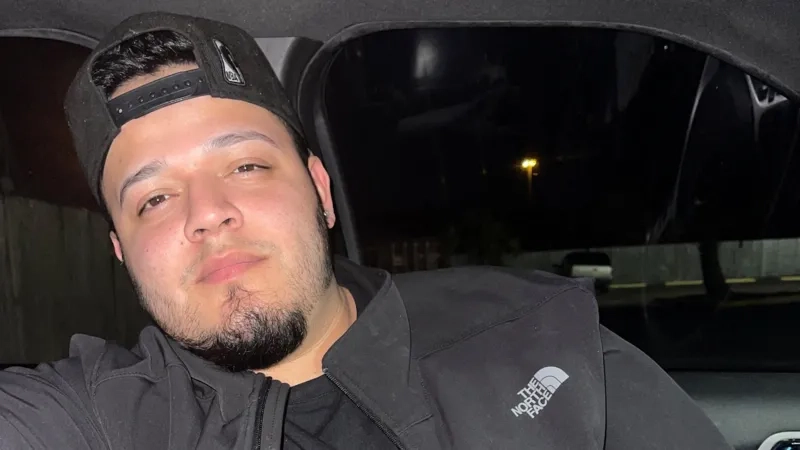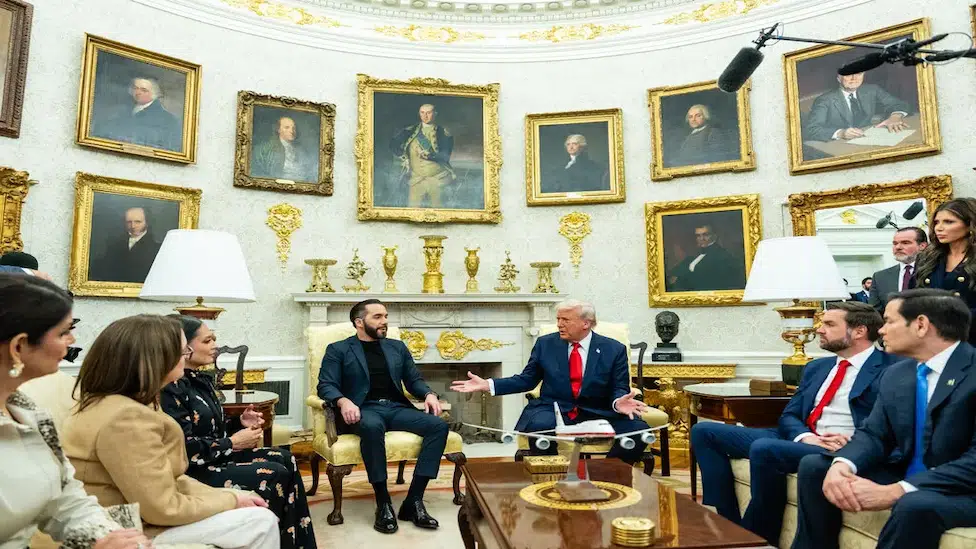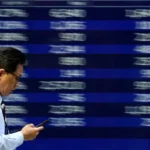US-El Salvador Deportation Deal: El Salvador has refused to return Kilmar Ábrego García, who was wrongly deported despite court protection. President Nayib Bukele confirmed the decision during his meeting with Donald Trump at the White House.
This comes after the US Supreme Court ruled that the government must help bring Ábrego García back. He is now held in a high-security prison in El Salvador. The case has sparked debate over the growing US-El Salvador deportation deal, which critics say ignores human rights and legal rulings.
Also Read | Harvard Funding Freeze: Trump Administration Withholds $2 Billion Over Antisemitism Dispute
US-El Salvador Deportation Deal: Insights
- Kilmar Ábrego García was deported despite having court protection from removal.
- El Salvador refuses to return him, citing sovereign rights.
- The US-El Salvador deportation deal allows suspected gang members to be deported to El Salvador.
- Trump and Bukele praised their partnership during a recent White House meeting.
- The Cecot mega-prison now holds over 200 US-deported migrants.
- Conditions in the prison are harsh, with overcrowding and limited access to basic needs.
- Ábrego García’s family claims he is not in any gang and is a victim of mistaken identity.
- The US admits an “administrative error” but also labels him as an MS-13 member.
- El Salvador receives $20,000 per deportee under the agreement.
- Legal experts question if this deal overrides court rulings and violates immigrant rights.
Background
The US-El Salvador deportation deal began after Trump returned to office. It allows the US to send suspected gang members to El Salvador, even if they have legal protections in the US. President Bukele has embraced the deal, which brings political and financial benefits to his administration.
However, critics say the policy violates human rights and due process. In 2019, Kilmar Ábrego García won court protection against deportation. Still, he was removed from the US and sent to a mega-prison known for its harsh conditions and overcrowding.
Main Event
President Nayib Bukele recently confirmed that El Salvador will not return Kilmar Ábrego García. His statement came during a meeting with Donald Trump, where both leaders praised the US-El Salvador deportation deal. The Supreme Court ruled last week that the US must help bring Ábrego García back.
\Yet, Bukele refused to cooperate, saying the matter was El Salvador’s decision.
Ábrego García was deported under a Trump-era policy targeting suspected gang members. His lawyer denies any gang ties and says he lived peacefully in Maryland. Despite this, he was among 261 migrants deported to Cecot, a prison known for its extreme conditions.
His wife, Jennifer Vasquez Sura, said the two governments are playing “political games” with his life.
Trump said he supports expanding deportations, even suggesting that violent US citizens could be sent to foreign prisons if legally possible. US Secretary of State Marco Rubio confirmed that more alleged gang members were recently deported. He called the alliance a “model for the region.”
The justice department admitted that Ábrego García’s deportation was due to an “administrative error.” However, they still insist he is part of MS-13. Meanwhile, court orders require daily updates on efforts to return him.
This controversy has sparked protests and renewed concerns over the legal and ethical grounds of the US-El Salvador deportation deal.

Kilmar Ábrego García was deported to El Salvador and imprisoned under the U.S. deportation agreement.
Photo Credits: REUTERS.
Also Read | Trump Tariff Exemptions Boost European Stocks: Tech Sector Jumps 3%
Implications
The case of Kilmar Ábrego García shows the serious risks of the US-El Salvador deportation deal. Families may lose loved ones due to government mistakes. Legal protections granted by courts seem to carry less weight under current policies. El Salvador gains financial aid and political support by accepting deportees.
However, the poor conditions at Cecot and the lack of legal review raise human rights concerns. The deal may also weaken the rule of law in both countries. Critics fear this trend will continue, affecting more immigrants with unresolved legal cases in the US.
Conclusion
The US-El Salvador deportation deal continues to face legal and ethical scrutiny. As more people are sent to El Salvador, questions grow about justice, human rights, and international law. Experts warn that ignoring court orders may set a dangerous precedent.
Families like Ábrego García’s are still fighting for a return home. The outcome of this case could influence the future of deportation policies in the US and beyond.



